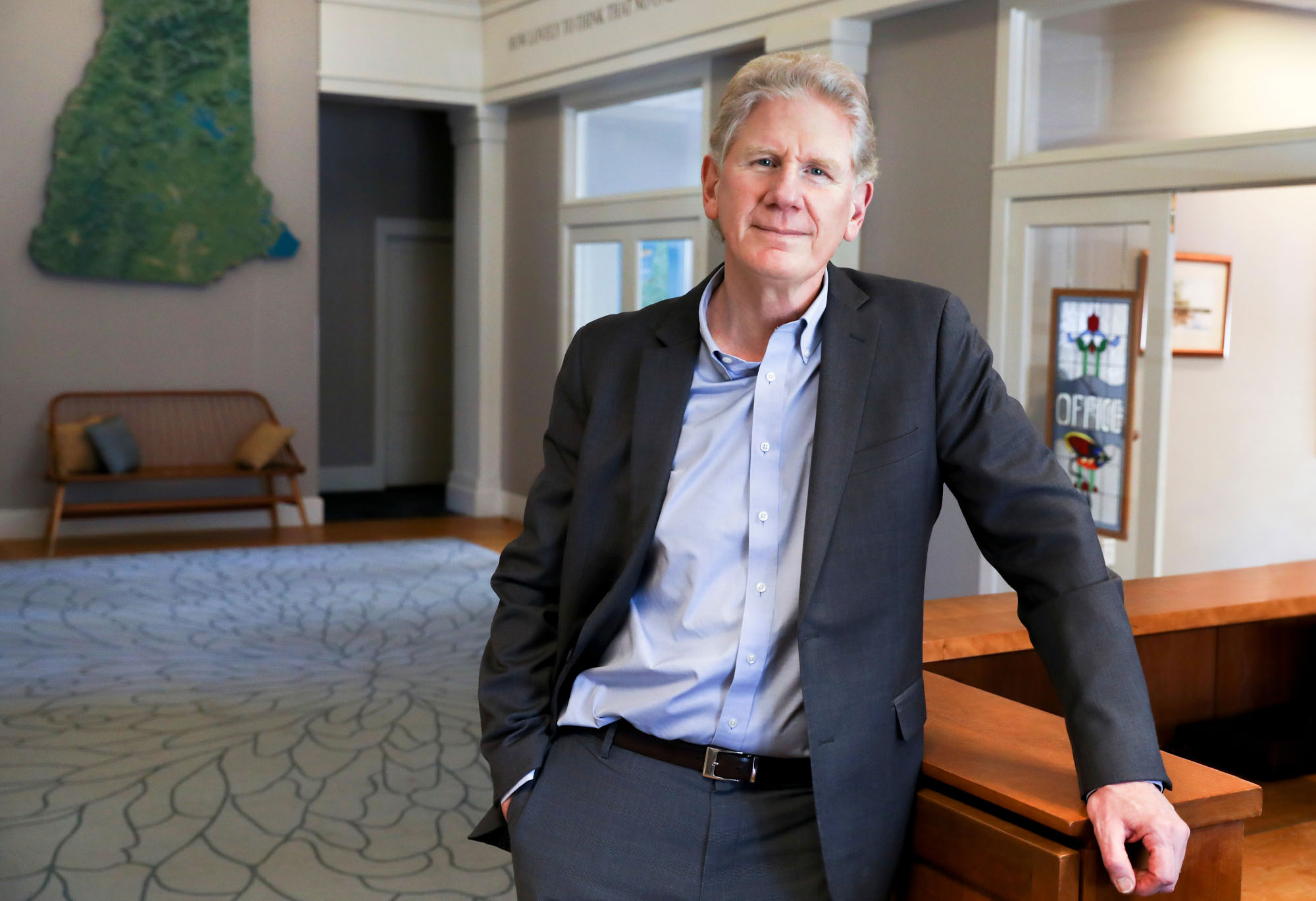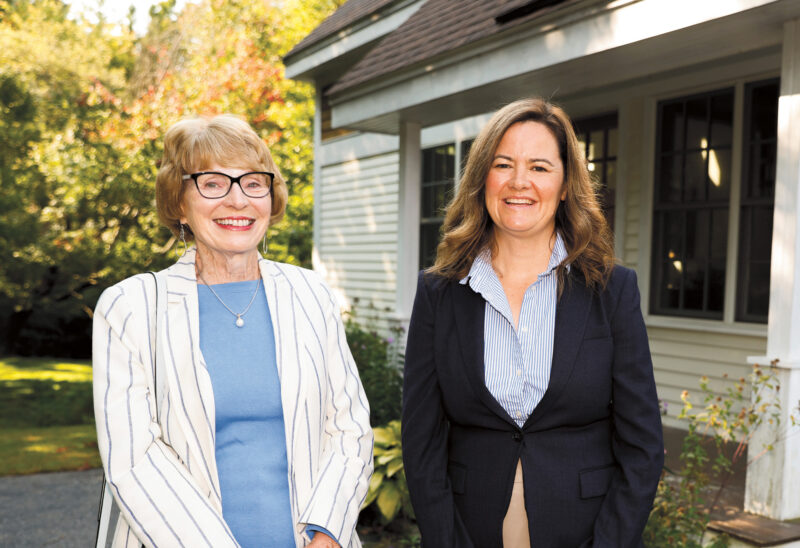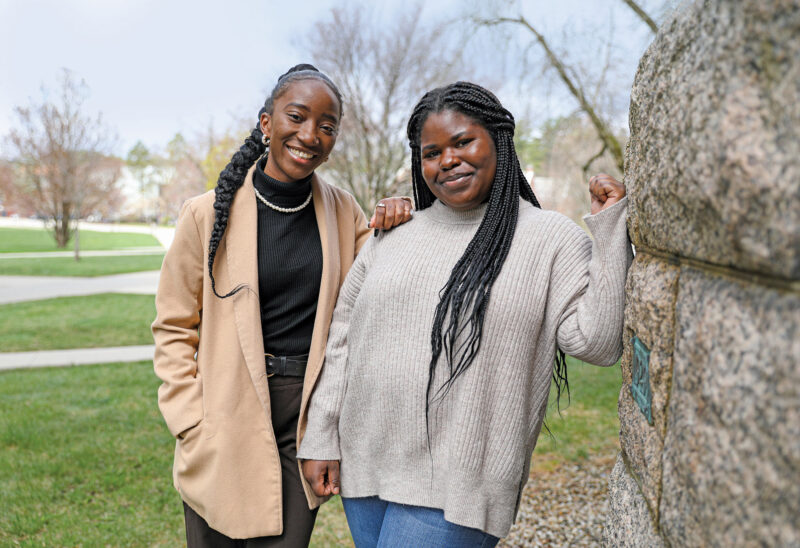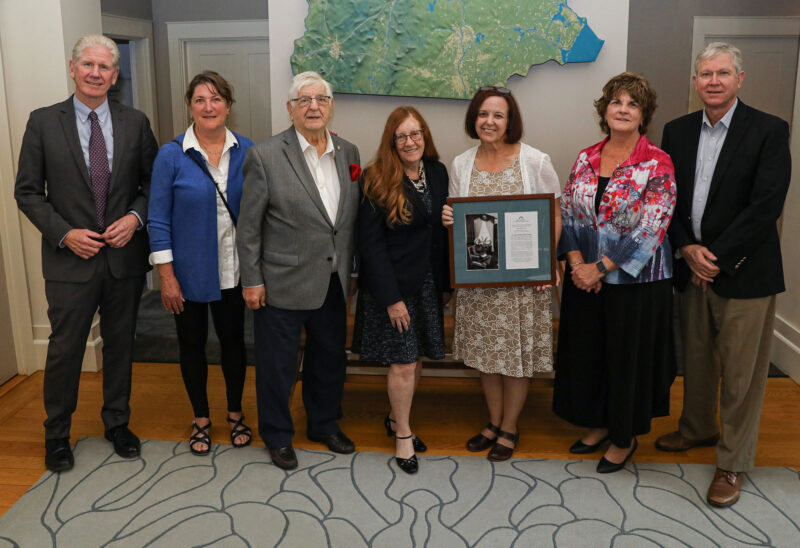Oliver Hubbard was a pragmatist, a chicken farmer, a lifelong Republican who believed in public education and in the common good.
He only left his hometown of Walpole, NH, for two stints during his life — one to serve in the First World War, and one to attend the University of New Hampshire. He would turn what started as a Boy Scout project raising hens on his family farm into a large and successful poultry-breeding business.
Oliver paid attention to the news. And he wanted the money he had made to do good in the state he called home.
Oliver was especially concerned about the crisis of addiction in New Hampshire. It irked him that the state made money selling alcohol, but had no state funding for addiction treatment. He mentioned this to his attorney, Charles DeGrandpre. How, he wondered, could something truly meaningful be done to address this? DeGrandpre suggested that Hubbard work on that question with the New Hampshire Charitable Foundation.
All of this started to unfold in the mid-90s — the better part of three decades ago. But I think about this story a lot, because it illustrates the power of community foundations, of human connection, and of audacious optimism in the face of seemingly intractable challenges.
Oliver Hubbard would eventually leave $43.5 million to the Foundation to address substance use disorders and related mental and physical health issues.
To guide the strategy for these funds, the Foundation convened an advisory panel that recommended a focus on changing systems and policy to create infrastructure for lasting change. It included lawmakers, the state attorney general, director of prisons, experts in prevention and treatment, academic researchers, physicians, people in recovery and national philanthropic consultants.
As we have reported: “Systems and infrastructure were built and supported by those funds — including the state’s system of regional public health networks and the Center for Excellence on Addiction…The funds were the catalyst behind the founding and sustaining of the nonprofit advocacy powerhouse New Futures, which has contributed to the passage of dozens of laws, from Medicaid expansion — which gave tens of thousands of Granite Staters access to health insurance that included coverage for addiction treatment — to the creation (and full funding) of the state’s Alcohol Fund…”
This model, built on expansive public-private partnerships and dependent on thousands of people pulling together in the same direction, is unique in the country. Challenges, of course, persist. But had those systems and infrastructures not existed when the state was faced with a subsequent opioid epidemic, it is very clear that outcomes would have been worse.
Now, as the science and understanding evolve about how intertwined substance use is with mental health, the Hubbard funds are supporting an evolution in our work on the issue. We have already granted out more than $50 million for prevention, treatment and recovery — and are poised to continue grantmaking well into the future. This work has helped to lever many millions more in federal and state investments to address a combination of health issues that has touched every family in our state.
Oliver Hubbard’s Yankee pragmatism and audacious optimism have paid off for the place he loved. What a legacy.









![Oluwakemi Olokunboyo of Dover received a McNabb scholarship to study nursing at Great Bay Community College [Photo by Cheryl Senter]](https://www.nhcf.org/wp-content/uploads/2024/05/Scholarship-Hero-800x548.jpg)
![Indrika Arnold, Senior Wealth Advisor, the Colony Group [Photo by Cheryl Senter]](https://www.nhcf.org/wp-content/uploads/2024/05/Indrika-Arnold-Hero-800x534.jpg)







